Call Us On (877)-585-0677 To Speak To An Expert Today!
Porn Addicts Anonymous: Everything You Need to Know About PAA
"Porn addiction doesn’t just steal your time—it can crush your confidence, mess up your relationships, and leave you feeling stuck in a cycle of shame. But here’s the truth: you CAN take back control. It starts with understanding what works for you."
Porn Addicts Anonymous (PAA) is one of the most popular support systems for people struggling with compulsive porn use. For some, it’s a life-changer.
But here’s the deal—PAA isn’t the only way. Not everyone benefits from calling their behavior an addiction. In fact, for some
Did you know that “porn addiction” isn’t officially recognized as a medical disorder? The American Psychiatric Association studied the concept for years and rejected it. So did the World Health Organization. The American Association of Sexuality Educators, Counselors and Therapists say:
AASECT 1) does not find sufficient empirical evidence to support the classification of sex addiction or porn addiction as a mental health disorder, and
2) does not find the sexual addiction training and treatment methods and educational pedagogies to be adequately informed by accurate human sexuality knowledge.
You can read their entire statement by clicking here.
Crazy, right? Most people have no idea that this massive controversy exists and it’s critical that you do.
Here’s why it matters: if traditional recovery methods aren’t working for you, it’s not your fault. This article is going to address the pros (and there are many) and the cons to help you make the best decision for your and your family.
If PAA helps you, keep going. But if you’re stuck or frustrated, don’t give up hope. There are other options—paths that might fit your needs better and help you build a life you’re proud of.
Let’s dive into what PAA is all about, its strengths and limitations, and the powerful alternatives that can set you free.

What is Porn Addicts Anonymous (PAA)?
Porn Addicts Anonymous (PAA) (or Sex Addicts Anonymous) follows an almost 90-year-old 12-step recovery model originally designed for individuals who feel powerless over their alcoholism. PAA is a peer-driven support group where almost everyone there understands what you’re going through.
How It Works:
1. Anonymity: You can share your story without fear of judgment—it’s a safe, private space.
2. Peer Support: You’re not alone. PAA connects you with people who have been in your shoes and genuinely want to help.
3. Personal Growth: PAA lets you set your own boundaries and define what recovery looks like for you.
Why PAA Is Similar to AA:
PAA is modeled after Alcoholics Anonymous (AA). It follows the same structure, but instead of focusing on alcohol, it addresses destructive sexual behaviors like excessive porn use.
The Core Principles of PAA
PAA is built on a few key principles that guide the recovery process:
Anonymity: “What’s said here, stays here.” Meetings are confidential so you can be honest without worrying about someone sharing your story outside the group.
Mutual Support: “We’re stronger together.” PAA is a community of people lifting each other up, sharing wins, struggles, and lessons learned.
Self-Responsibility: “Your recovery, your rules.” PAA encourages you to take control of your journey and set goals that work for your life.
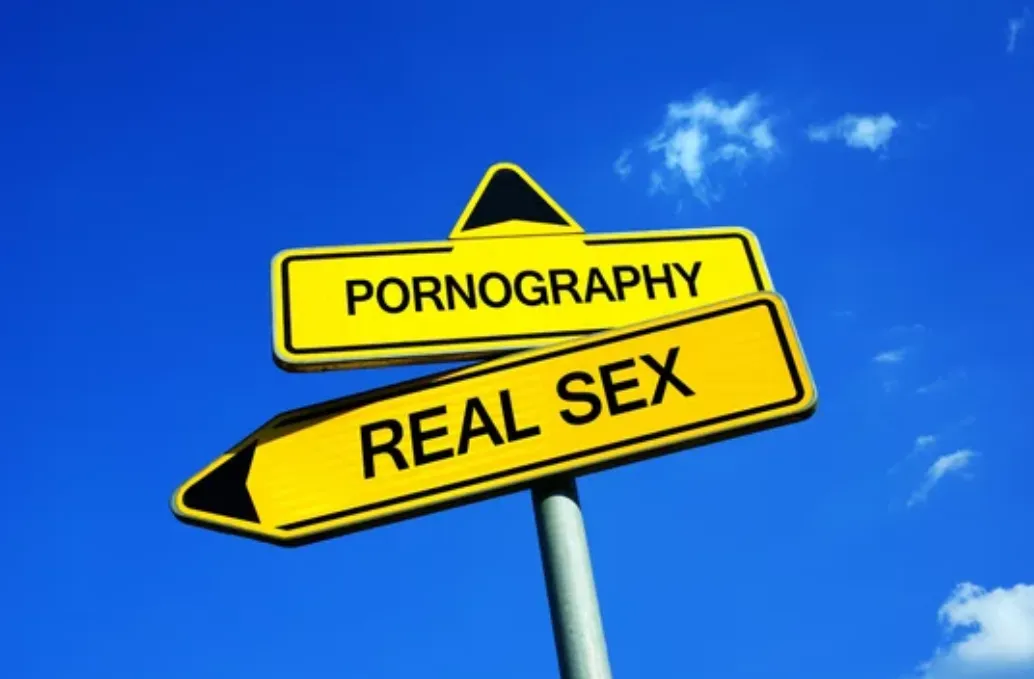
What Happens in a PAA Meeting?
Walking into your first PAA meeting might feel intimidating, but for some men, it can be a welcome space since everyone there knows what you are going through.
Structure:
Meetings typically last about an hour.
A member leads the session, which includes readings, personal sharing, and open discussions.
The goal is to create a supportive environment where everyone feels heard.
Inclusivity:
PAA is open to everyone, regardless of gender, sexual orientation, or background.
You don’t need to say anything during your first meeting—just listen and get a feel for it.
Cost:
Meetings are free. There’s no membership fee or obligation—just a safe space to start healing.
The Benefits of Joining PAA
1. Safe Space: “No judgment. No stigma. Just support.” You can speak openly about your struggles without fear of being judged.
2. Accountability: “Stay on track with people who have your back.” The group helps you stay focused and committed to stop watching porn.
3. Community: “You’re not alone.” Recovery can feel isolating, but PAA connects you with people who’ve walked the same path.
4. Anonymity: “What’s shared in the room stays in the room.” Your privacy is respected so you can be vulnerable without fear.
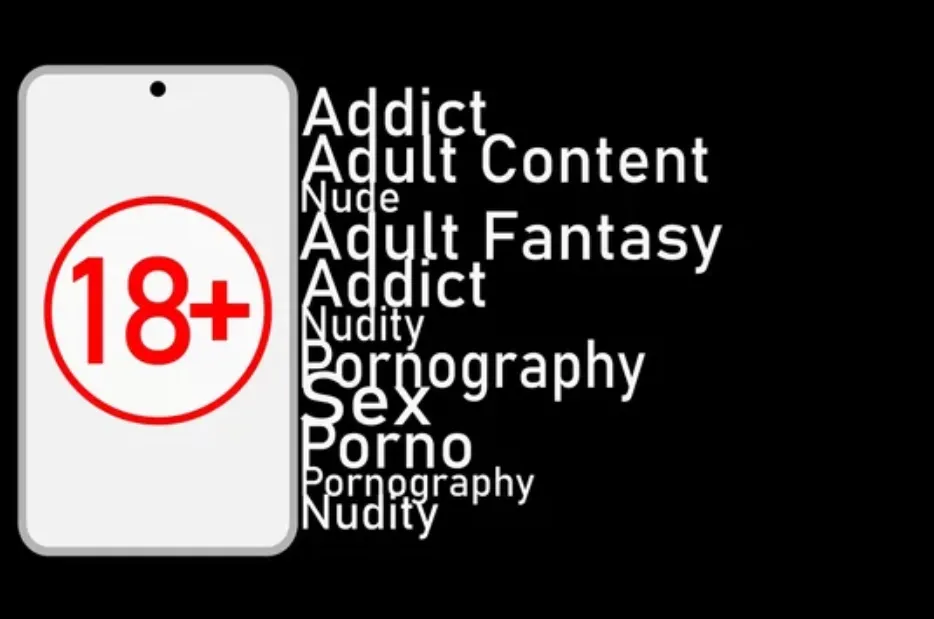
Why PAA May Not Be Enough for Everyone
The Limitations of Porn Addicts Anonymous: Is It the Right Fit for You?
Porn Addicts Anonymous (PAA) has undoubtedly changed lives, offering community and hope to many who felt lost in their struggles. However, it’s not a one-size-fits-all solution. Here are the key limitations you should consider, especially if you’ve felt frustrated with your progress in recovery:
1. A Problem-Focused Identity “ I am a porn addict”
In PAA, you identify as a “porn addict” at every meeting and say out-loud “I am a porn addict.” While this declaration can foster accountability, research indicates that overly focusing on negative labels can perpetuate shame and hinder recovery.
Dr. Brené Brown notes, “Shame corrodes the very part of us that believes we are capable of change.” For some, constantly affirming the "addict" identity reinforces feelings of hopelessness, keeping them stuck in the cycle.
Client Insight:
“Every time I called myself a porn addict, I felt like I was cementing that identity. It wasn’t until I learned to see myself as more than my addiction that I started to believe I could really change.” – James, former client of The Mindful Habit
2. Limited Evidence-Based Tools
PAA’s spiritual foundation, rooted in surrendering to a higher power, may not resonate with everyone. Modern recovery science emphasizes evidence-based approaches like cognitive behavioral tools and mindfulness to address addiction effectively. It lacks a fundamental focus on emotional regulation.
Client Insight:
“I wanted more than just faith. I needed tools to manage my urges and work through the underlying issues. That’s what made The Mindful Habit such a game-changer for me.” – Mark, former client
3. Too Focused on Breaking Habits, Not Making Them
One critical limitation of PAA is its overemphasis on stopping porn use without teaching participants how to build healthy, fulfilling habits. This violates a fundamental principle of behavior modification: “To break a habit, you must create the right habits that meet your needs.”
Without a focus on habit creation, participants often fall into the trap of obsessing over what they’re trying to avoid, making it harder to achieve lasting freedom.
Client Insight:
“Stopping porn wasn’t enough. I needed to replace it with habits that gave me the connection and satisfaction I was craving.” – Adam, former client
4. Treats Symptoms vs. Root Causes
PAA addresses the symptoms—compulsive porn use—but overlooks the underlying issues driving the behavior, such as unresolved trauma, emotional dysregulation, stress, anxiety, depression, or unmet needs. After 13 years of helping clients, I’ve learned that behavior is always a symptom of deeper problems.
Sobriety is step one. Not doing the thing is just the beginning. Working with thousands of successful men all over the world has taught me that sobriety alone is less than 10% of the solution.
As Dr. Gabor Maté explains, “Addiction is not a problem in itself but a response to human suffering.” Without addressing the root causes, true transformation remains out of reach.
Client Insight:
“It wasn’t until I confronted my fear of failure and my need for control that I finally felt free. Porn was just a symptom of deeper struggles.” – Chris, former client
5. A Slow Pace for High Performers
The self-paced structure of PAA can feel too slow for those who thrive on fast results and personalized strategies. If you’re a high performer accustomed to achieving goals quickly, you might feel frustrated by the pace and lack of customization.
Client Insight:
“I needed a system that matched my drive. Sitting in meetings and waiting for change wasn’t enough. I wanted to take action and see results immediately.” – Ryan, former client
6. Religious Foundations May Not Align with Everyone
PAA’s roots in Christian theology, including surrendering to God or a higher power, can alienate individuals whose beliefs don’t align with this perspective. Recovery is deeply personal, and many people benefit from approaches that respect diverse worldviews.
Client Insight:
“I struggled with the idea of surrendering to God because it didn’t resonate with me. I needed a program that empowered me to take control of my life.” – Dan, former client
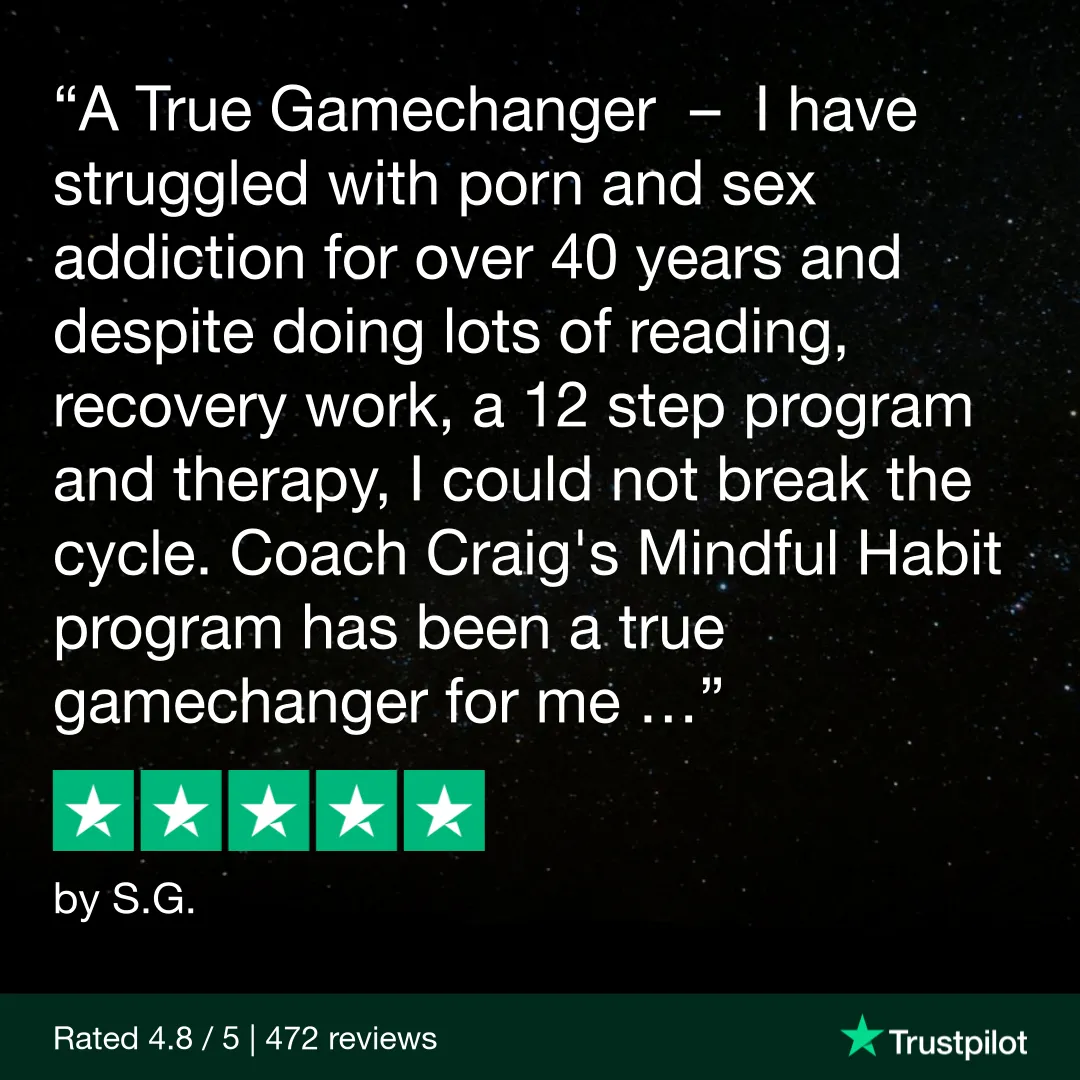
When You Need Expertise to Accelerate, Deepen, and Sustain Recovery
No Expertise
For some, a supportive community like PAA is enough to start the journey toward recovery. But for others, especially those struggling with deep-seated habits formed in childhood, overcoming sex and porn addiction requires more than shared stories and spiritual surrender.
It demands expertise, structure, and a proven system designed to tackle the unique challenges of this addiction.
I know this from personal experience. My struggles with the traditional 12-step model for sex and porn addiction were the catalyst for creating The Mindful Habit System.
My out of control addiction cost me two jobs, almost my family, and my life when my shame pushed me to a suicide attempt. At this low point, I had been on and off in sex and porn addiction treatment for almost 20 years. I knew I had to do something different - my life depended on it.
I had this crazy idea that I could build a system that moved men quicker, deeper, and was obsessed with sustainability - making it last.
My failures pushed me to create a highly action-oriented, goal-centric, and structured training program. Unlike models that focus solely on stopping the behavior, The Mindful Habit System empowers you to increase self-control, elevate emotional intelligence, create healthy sexuality, and build the systems necessary for long-term sustainability.
Addiction is never just about the behavior; it’s about unmet needs, unresolved emotions, and coping mechanisms developed in childhood.
As someone who has lived through this struggle and emerged on the other side, I’ve seen firsthand that sobriety isn’t enough. The cure lies in what I call “the aggressive pursuit of a great life.”
I know it sounds cliché, but here’s the truth—this is one of the hardest addictions to break and the only way out is to be great. Average and mediocrity won’t cut it.
Why? Because it’s not just a bad habit; this addiction is deeply ingrained in your brain, emotions, and identity.
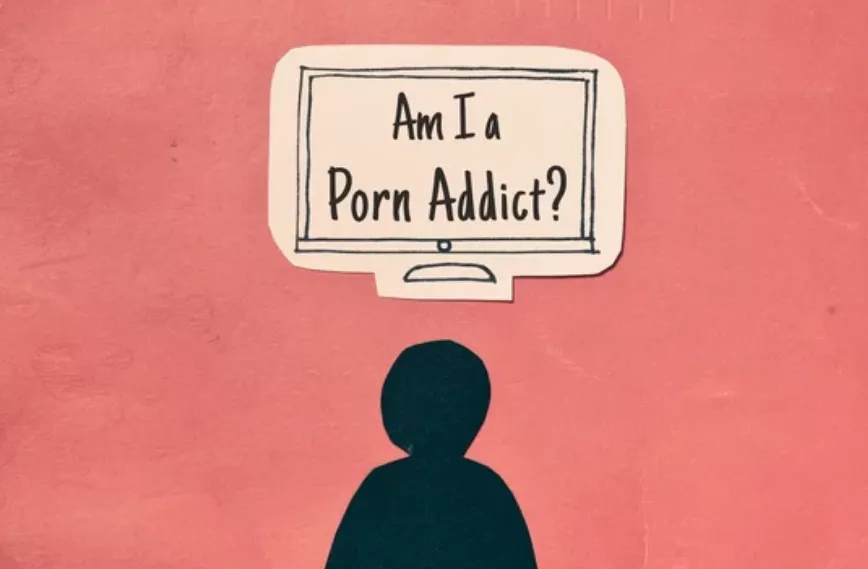
Here’s why it’s so hard to stop:
1. It Starts in Childhood: Using sexual activity to relieve stress and seek rewards often starts in childhood. This is when your brain is at its most impressionable, laying the groundwork for lifelong patterns. The lying, the secrecy, and the shame—it all starts here, embedding itself into the foundation of who you are.
2. We’ve Done it Thousands of Times: Think about how many times you’ve turned to porn and masturbation—thousands, maybe tens of thousands.
From a neuroscience perspective, “what wires together fires together.” Every instance reinforces the neural pathways in your brain, making the behavior automatic and deeply entrenched. For many men, it’s been repeated more times than they’ve brushed their teeth or ridden a bicycle.
3. We Are Wired For It: Porn preys on men’s natural biological tendencies. As men, we’re hardwired to be visually stimulated and drawn to variety—it’s part of our evolutionary makeup.
Porn doesn’t just take advantage of this wiring; it hijacks it, creating an artificial stimulus that’s far more intense than anything natural, making it incredibly hard to resist.
4. We Use it to Cope With Our Hard Lives: Life is hard, and many of us were never taught how to navigate stress, anxiety, depression, or relationships in a healthy way.
Men often carry immense pressure—whether it’s providing for their families, meeting expectations, or just keeping it together. Porn becomes an easy, effective, but short-term fix for these burdens.
It’s a quick escape, even though the long-term consequences—broken relationships, damaged self-esteem, and unfulfilled potential—can be devastating.
5. We’re Ashamed: Unlike other addictions, this one thrives in the shadows. The shame associated with porn use and compulsive sexual behavior makes it harder to talk about and seek help for. This isolation fuels the cycle, keeping you stuck and disconnected from the support you need to break free.
6. It’s Everywhere: Unlike substances like drugs or alcohol, porn is accessible 24/7, often for free, right at your fingertips. You don’t need to go to a bar or meet a dealer—it’s always just a click away. This constant availability makes resisting temptation even more difficult.
7. We Lack Emotional Intelligence (especially in our marriages)Breaking free from porn addiction is especially challenging because it creates a deep disconnect in intimate relationships. Porn and masturbation drains our sexual energy that should be directed toward a partner, leaving emotional and physical intimacy unfulfilled.
The shame many men feel around their addiction creates barriers to vulnerability, making it harder to communicate and connect. Compounding this, most men don’t understand their own needs—sexual or non-sexual—let alone how to express them.
To make matters worse, the habit of escaping discomfort through porn often strikes at their partner’s deepest emotional wounds, leading to a cycle of shame, disconnection, and unmet needs that feels impossible to break without a transformative approach.
8. We Aren’t Getting the Right Help: Breaking this addiction requires more than willpower or good intentions. It demands a system, a strategy, and a relentless commitment to creating the life you truly want. It’s not just about stopping—it’s about transforming.
It’s about more than just breaking the cycle; it’s about building a life so fulfilling, balanced, and aligned with your values that the addiction no longer has a place.
A great life isn’t something that happens passively—it requires relentless focus, self-leadership, and proactive skill-building to meet your emotional and relational needs head-on.
A trained professional can help you identify and address the root causes of your addiction. Expertise accelerates progress by providing clarity, structure, and tools tailored to your unique challenges.
When that professional (me) has been through the same struggle, we bring a level of empathy and insight that can deepen your journey.
Over the past 13 years, I’ve helped thousands of men overcome sex and porn addiction not by asking them to surrender, but by empowering them to take control of their lives. My system helps clients turn their biggest struggles into their greatest strengths. If you’re ready to take a different approach—one rooted in science, structure, and self-leadership—the journey starts here.
Because overcoming this problem isn’t just about recovery. It’s about transformation. It’s about living the great life you were meant to live.
The Mindful Habit Difference
Unlike PAA, The Mindful Habit takes a comprehensive, science-backed approach to recovery. We believe in creating habits that meet your needs, addressing the root causes of addiction, and empowering you with tools to build a healthy, fulfilling life.
And we support your spouse, who undoubtedly has emotional wounds that need to be treated.
If you’ve felt frustrated with PAA or are seeking a faster, more results-driven approach, we’re here to help. Recovery is about more than just sobriety—it’s about transformation. Let’s take the next step together.
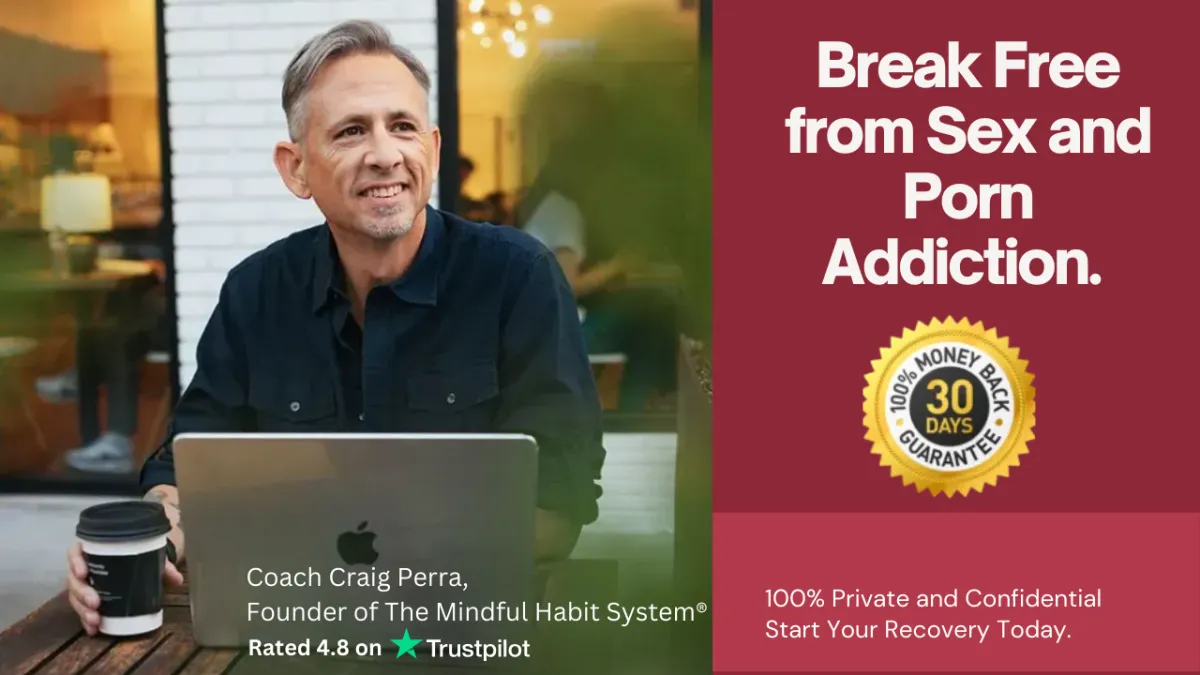
A Modern, Empowering Approach: The Mindful Habit®
If PAA isn’t working for you, it doesn’t mean you’re broken. It just means you need a different approach. Enter The Mindful Habit®—a science-backed recovery system created by Craig Perra.
Here's why The Mindful Habit® stands out:
1. Clear, Actionable Steps: No vague guidelines. You get a personalized roadmap that walks you through each step of the process.
2. Science Meets Mindfulness: Combines cognitive-behavioral tools, parts work, mindfulness, and habit formation to rewire your brain and address emotional triggers.
3. Focus on Thriving, Not Just Surviving: Recovery isn’t just about stopping harmful behaviors—it’s about building a life you’re excited to wake up to.
4. Customized for YOU: The program is tailored to your unique challenges, lifestyle, and goals.
Practical Tips to Get Started
Ready to take that first step? Here’s how to begin:
1. Try a PAA Meeting: Visit the official PAA website to find virtual or in-person meetings that fit your schedule.
2. Explore Personalized Coaching: Book a free consultation with a coach who can provide one-on-one support and help you create a custom recovery plan.
3. Build New Habits: Focus on healthy habits that meet your emotional needs. Remember: to break a bad habit, you need to make a new habit that serves you better.
Key Takeaway: You’re Not Stuck
Your recovery journey is yours alone. Whether it’s PAA, The Mindful Habit®, or another program, the important thing is finding a path that fits YOU.
Recovery isn’t about perfection—it’s about progress. You don’t have to settle for just getting by. You can build a life that’s meaningful, exciting, and free from the grip of compulsive behaviors.
Start today. You’ve got this.
Quick Links
Call Us To Schedule Your Appointment:
Copyright @ 2026. The Mindful Habit® System | All Rights Reserved


